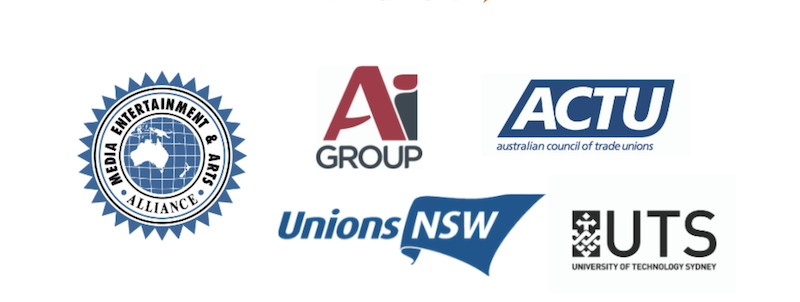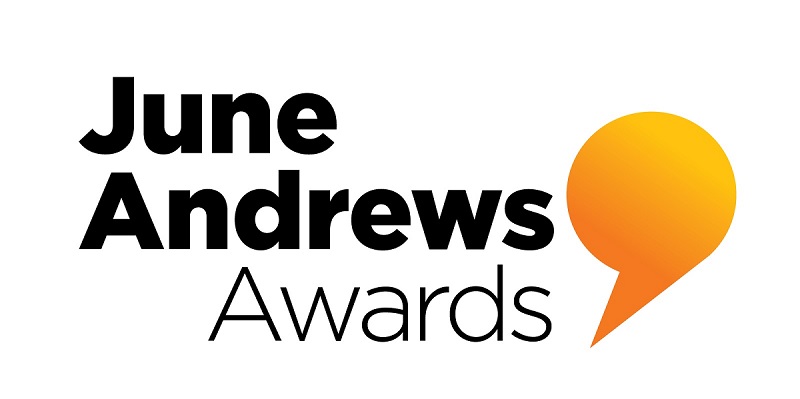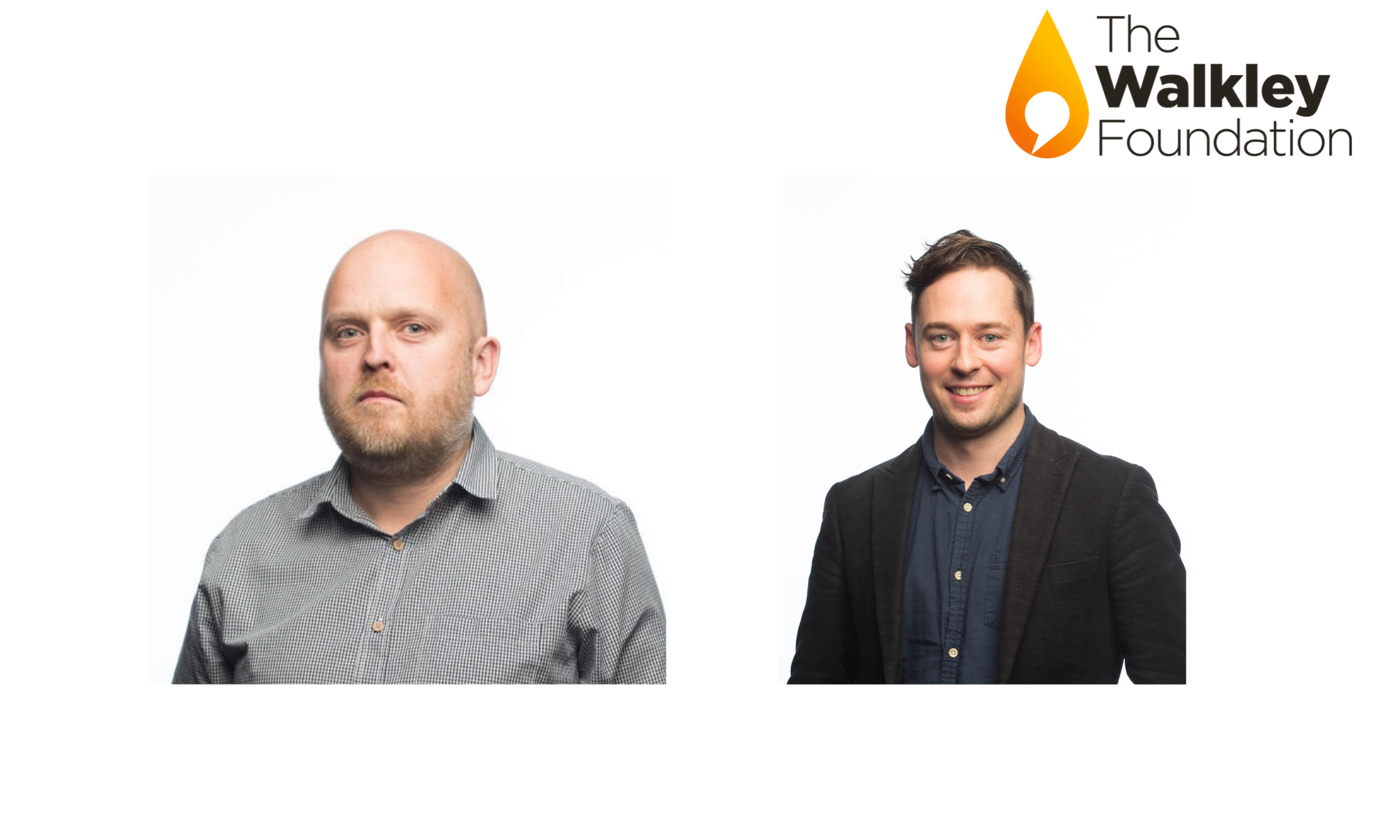2020 winner with Nick McKenzie of The June Andrews Award for Industrial Relations Reporting
Investigative journalist Ben Schneiders won the Industrial Relations Reporting Award for the third time at the 2020 Mid-Year Celebration of Journalism (adding to his gongs from 2017 and 2019), this time for his explosive piece with Nick McKenzie (also a multiple-Walkley-winner) in The Age, “John Setka, domestic violence and the unions”.
“These explosive scoops on the CFMEU’s John Setka caused a national political firestorm lasting weeks, plunged the organisation into crisis, and sparked battles between Labor and Australia’s most militant union,” the judges said.
“The stories were only possible because of years of experience from both Schneiders and McKenzie in dealing with high-level industry and legal contacts.”
We spoke with Ben over Zoom about the political fallout from his and Nick McKenzie’s reporting, its impact on “probably one of the most important unions in Australia”, and the industry impact, and lack of scrutiny of the powerful, that has come from losing hundreds of regional Australian court and council beat journalists.
What’s the significance for you of there being a particular award that recognises excellence in reporting Industrial Relations?
I think it’s a really important area. The issues around work and the economy are essential to everyone’s lives. It’s how we mostly have [an] income, it’s through working as an employee, or if you’re a business owner, it’s how you make an income, running a business.
So the intersection of those two things, the interests of people who work and the people who run businesses, [it’s] a central feature of all our lives and how we manage to satisfy — or not — our material wants.
It’s a really interesting area. I started reporting on it as a young reporter in my cadetship and then had a spell reporting on it for many years at The Age, about a decade ago. I still have a really keen interest in all the issues and debates around it, and follow it closely. Now I work in a more general area, as an investigative reporter, but a lot of the time my work returns to issues around wages, and conditions at work; issues to do with the labour movement, issues to do with politics.
Tell us a little bit about the story behind this particular piece. How did you come across this one? How did it play out?
For a long time, myself and Nick McKenzie, we’re both based in Melbourne at The Age, we’ve reported a lot about the construction industry and also the role of the construction union in Victoria. Which is both well known for its ability to get pretty good conditions and wages for its members, but also it’s been tainted over a long time with allegations around corruption or links to people in the organised crime, that kind of thing.
It’s got a very colourful reputation, it’s a big union, it plays an important role in Melbourne and Victoria. So it’s of interest, as journalists, and so we’d worked together on stories in the past in this area. And then the middle of last year, we came together to work on these stories. And the first one really dealt with some pretty serious and disturbing details on the conduct of John Setka, who’s the head of the CFMEU (Construction, Forestry, Maritime, Mining and Energy Union) in Victoria.
“We had an incredibly detailed leak out of the CFMEU’s national executive with Setka defending his behaviour, and also making comments about [anti-domestic violence campaigner] Rosie Batty”
In particular, he’d been charged with domestic violence offences, around 30 offences at the time. So Nick [McKenzie] and I came together with two different parts to that story. We had all the detail of what the charges said he had done in that criminal case, so that was incredibly explosive material. But also we had an incredibly detailed leak out of the CFMEU’s national executive with Setka defending his behaviour, and also making comments about [anti-domestic violence campaigner] Rosie Batty, saying her advocacy had made it harder for people like him to have a fair hearing.
It was essentially a men’s rights argument. So the detail of what he’d done was part of the story. There was also other comments from that meeting which were leaked, where he said that the ALP could “suck him off” and defended his relationship with Mick Gatto, the underworld figure, but all of it kind of got washed away by that reference.
All the comments attributed to him [were] about Rosie Batty. It really became a big national story for several weeks where there was pressure really quickly to expel him from the ALP, to have the union have him kicked out of his role. Anthony Albanese was talking about it, then Daniel Andrews the Victorian Premier. Within about a week, 13 national unions, including ACTU Secretary Sally McManus called on him to resign. It became a very lengthy national debate around issues to do with what’s acceptable in terms of domestic violence and all these kinds of issues, so it became quite a big deal in the middle of last year and dragged on for much of 2019.
For you, what have been some of the most significant impacts this story and this reporting has had?
It was surprising, to be honest. You quite often write stories and you’re never quite sure how they’re going to resonate or what sort of impact they’re going to have. Sometimes you think you’ve got a really great story and it might mostly get ignored and have only a limited impact. I was surprised by how this just took off. And in particular, the focus on Rosie Batty, because we both felt like there’s some really substantial stuff here around some really appalling conduct, which kind of got, in the follow-up media and in the political debate, kind of got washed away by the focus on Rosie Batty.
The real impact was [that] I was quite surprised by the level of the intensity of the reaction to the story and the fact that became a massive national issue for several weeks. You just didn’t expect that. I think the focus on Rosie Batty, the comments about Rosie Batty, was sort of quite extraordinary, and over the top.
“The end result was it became a little bit of a circus, but it also became the important debate and national debate about domestic violence.”
There was a number of things that Setka had done. His conduct, the abuse, some other credible allegations that were very serious, that they got kind of washed away by all this.
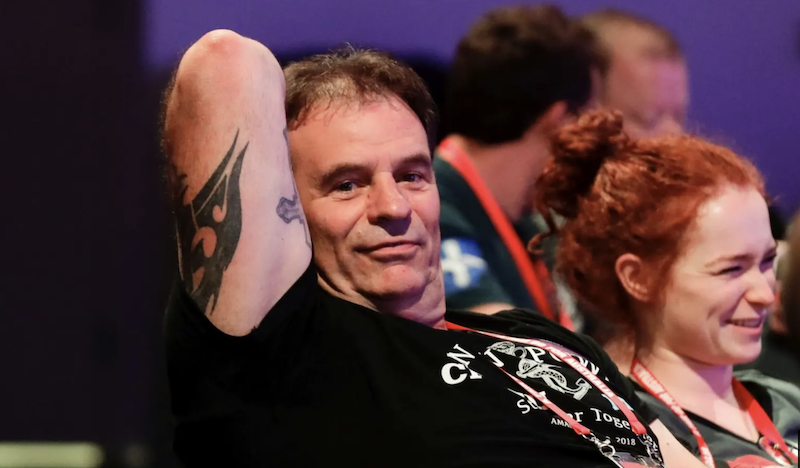
John Setka at the 2018 ALP Conference. Photo by Alex Ellinghausen via SMH
So the end result was it became a little bit of a circus, but it also became an important debate, and a national debate, about domestic violence. It forced people in significant positions to say where they stood, and drew a line that it’s not really acceptable anymore to have someone in a position like that who’s had convictions for domestic violence. I don’t think you would have a CEO, or the head of an NGO, or someone in politics having convictions like and staying, but it showed some of the weaknesses of the way the CMFEU is constituted that there was little ability for members, or others really, to remove him from the role.
“It forced people in significant positions to say where they stood, and drew a line that it’s not really acceptable anymore to have someone in a position like that who’s had convictions for domestic violence”
So the impact spread beyond being about industrial relations and unions and into a broader conversation about gendered violence and the way that it’s discussed in Australian society?
That’s right. I think that’s what its really impact was — it was obviously a story about important figures in industrial relations; a union that’s really important in Melbourne [for their] rights and wages; it also affects the people that employ them and [there’s] a range of other side effects from that.
But it became much more a story about family violence and what’s acceptable, and I think it’s pointed to some of the shifting standards. And while he [Setka] has survived in his role until now, it has shown that things that might’ve been dismissed 10, 20 years ago, people will no longer take. And there’s still an ongoing issue within the CFMEU from this a year later.
There’s a significant split within the national union, between half the union that still wants him gone or are opposing him, and another half from his own division that are supportive. It’s had a long-lasting impact on what’s, really, probably one of the most important unions in Australia.
“It’s had a long lasting impact on what’s, really, probably one of the most important unions in Australia”
And is this a story that’s still developing for you? Do you see it going further or is it all kind of wrapped up?
The really intense period for the story was maybe the three or four months after we did the original story, but it’s still an ongoing issue. There’s still a lot of tension in the Victorian union movement and in the national CFMEU like I alluded to before.
Just recently Setka’s led, I guess, a move to remove the national secretary of the CFMEU Michael O’Connor. And everyone really sees that as payback for O’Connor not supporting him over his domestic violence offences and conviction. It’s an ongoing impact on that union and how it functions and how it will look into the future.
This is a question that we’ve asked you before, but looking at the past year and the impact that COVID has had upon journalism and the way that we work, what are your thoughts now around why journalism is more important than ever to the Australian public, as part of a functioning society?
You know, it’s a really good question. And it’s obviously come into pretty sharp relief in the last few months when you’ve seen a number of newer, smaller outlets essentially fold — or new attempts to kind of have digital journalism flourish, [end up] being wound back or going out of business. And I think that’s a terrible outcome.
There’s a lot of great journalism done, and journalism is incredibly important. The scrutiny of public figures is important to democracy in many ways when it’s done well. But I think the reality is that [the media] has gone through, really, a decade long contraction, and with the collapse of advertising, because of COVID, some of the less viable businesses have gone out of business and that’s a tragedy for the industry.
“It’s really problematic in terms of scrutiny… I feel like there’s a lot of areas barely covered anymore. You kick around and have a poke around, say suburban councils in Melbourne, and you can find some eye watering stories of misconduct and corruption”
It’s really problematic in terms of scrutiny because what I’ve noticed, as I’ve been a journalist now for 20 years, I feel like there’s a lot of areas barely covered anymore. You kick around and have a poke around issues, say suburban councils in Melbourne, and you can find some eye watering stories of misconduct and corruption.
Now in the past, you would have had several local journalists and reporters working at a Leader or a Fairfax weekly. And I think that the benefit of people — of councillors, or property developers, or whatever — just being watched, even if the scrutiny isn’t particularly thorough, the idea that there’s a journalist there and someone can tip them off about something and there could be adverse stories, I think [that] probably has an effect on behaviour that’s really quite beneficial.
“It’s not all about the big stories and the big exclusives at the beginning of investigations. It’s about that day to day work that’s lost from the contraction to the industry, and it’s hard to kind of quantify”
The public good, and the public benefits from journalism, are probably not properly understood. If you have journalists turning up to council meetings, journalists turning up to courts, doing all that routine work, which involves a lot of hours, a lot of work from a lot of professional journalists.
Losing that, I think society is poorer for it. It’s not all about the big stories and the big exclusives at the beginning of investigations. It’s about that day to day work that’s lost in the contraction of the industry. It’s hard to kind of quantify, or hard to describe how that’s lost or how it’s gone, but that’s what I’ve noticed. And you realise that when you start having a look, ‘well there’s no local journalists out here’.
There used to be two or three, and now there’s one and they completely overworked. And we see that we’re probably in a better position than most, The Age and The Sydney Morning Herald had been adding jobs in recent years after a lot of cuts, but for a lot of industry, it’s pretty dire straits.
Is there anything else that you’d like to add about the significance for you of receiving this award for this particular story, or anything else you’d like to add about it?
It was a tremendous thing to receive, though personally, [they were] really difficult stories to write. There’s a lot of legal issues around identifying victims of domestic violence — and it later emerged, and we can now report this, that it was John Setka’s wife who was the victim. So it was an incredibly sensitive issue to report on. And you had to kind of wait. A whole lot of concerns around the law and ethics and that kind of thing. It was a hard thing to do, I’d known John Setka for a long time, I’d been on reasonably good terms with him. So, you then unearth or find that information, which is pretty shocking really.
“Throughout the whole process, I received numerous emails and messages from people, in particular from women. It was really heartening and it gave me strength to keep going in what I found was quite a challenging area to write on”
And then you’ve got to then kind of navigate that and do your job as a reporter. So that’s not always easy, but I think to hear how people who are advocates, or victims, or survivors of domestic violence, talk about it — the support you got from them was terrific. Throughout the whole process, I received numerous emails and messages from people from inside the union movement or outside the union movements, egging me on, supporting me for the work and saying it’s really important, in particular from women. It was really heartening and it gave me strength to keep going in what I found was quite a challenging area to write on.
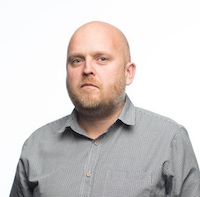
Ben Schneiders is an investigative journalist at The Age with a focus on industrial relations, business and politics. He has written extensively on the underpayment of workers, political corruption and on the labour movement. Ben is a Walkley Award-winning journalist and has worked at The Age since 2006 in roles including senior writer and workplace editor.

Nick McKenzie is a Walkley Award-winning investigative journalist with The Age and The Sydney Morning Herald. He has also reported for 60 Minutes and Four Corners.
Watch interviews with the winners of the 2020 Mid-Year Celebration of Journalism
Read all the winners of the Mid-Year Celebration of Journalism Awards here.
The June Andrews Award for Industrial Relations Reporting is supported by:
